-
-full.webp)
Wheatfield With Cornflowers (1890)
A vibrant wheatfield dotted with blue cornflowers, alive with van Gogh’s dynamic brushwork and emotional intensity.
-
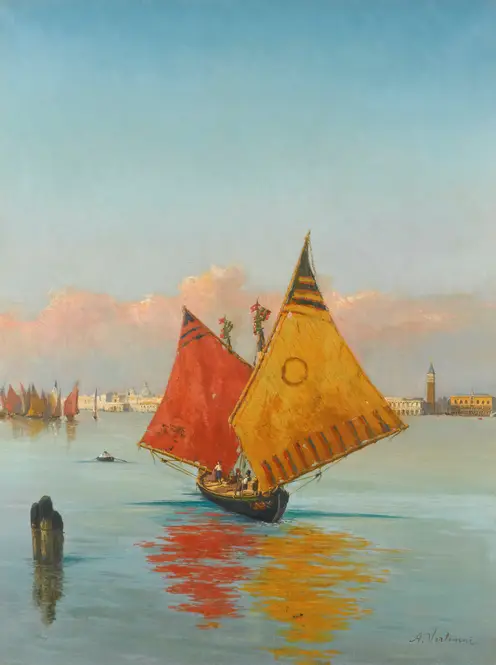
View across the lagoon, venice
A misty Venetian lagoon dissolves into twilight, where gondolas and palazzos blur like half-remembered dreams.
-
-full.webp)
Portrait of Vivian E. Dunton with Book (circa 1920)
A contemplative portrait of a woman absorbed in a book, radiating quiet elegance and subtle emotion.
-
-full.webp)
Jeune fille au piano. Portrait de Mademoiselle Warnier (1922)
A young woman lost in thought at the piano, bathed in soft light that lends the scene an almost ethereal quality.
-
-full.webp)
The Flirt (1874)
A playful beachside encounter, charged with unspoken tension and the restless energy of the sea.
-
-full.webp)
Landscape (c. 1880)
A tranquil countryside scene bathed in soft twilight, where winding paths and scattered trees invite quiet contemplation.
-
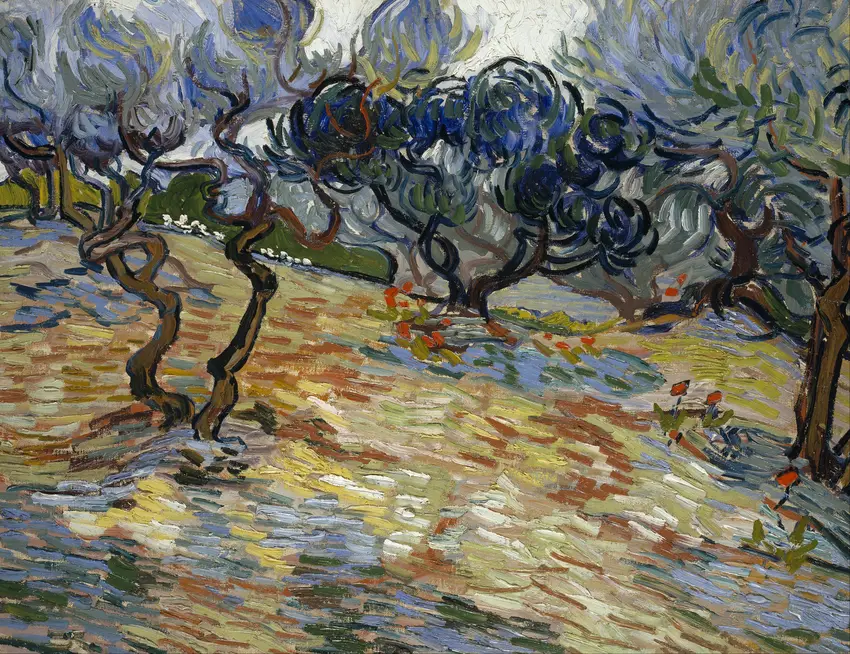
Olive Trees
A vibrant, swirling depiction of olive trees, alive with motion and emotion under a turbulent sky.
-
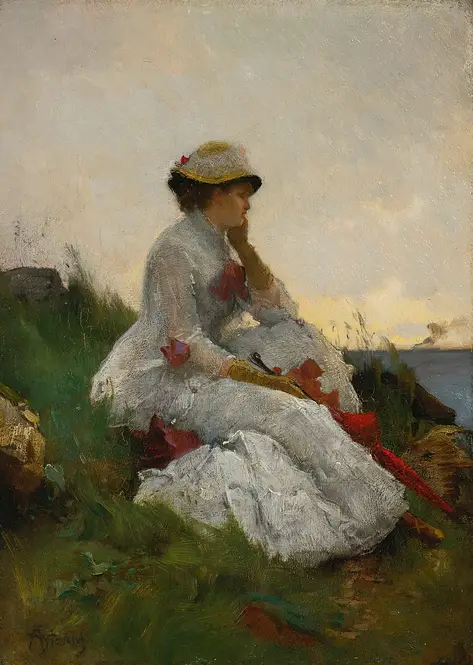
Pensive
A woman lost in thought, her quiet expression and delicate features illuminated by soft light, conveying deep introspection.
-

Crépuscule en Brière
A mesmerizing twilight scene where marshlands dissolve into dreamlike hues of purple and gold, blending reality with the ethereal.
-
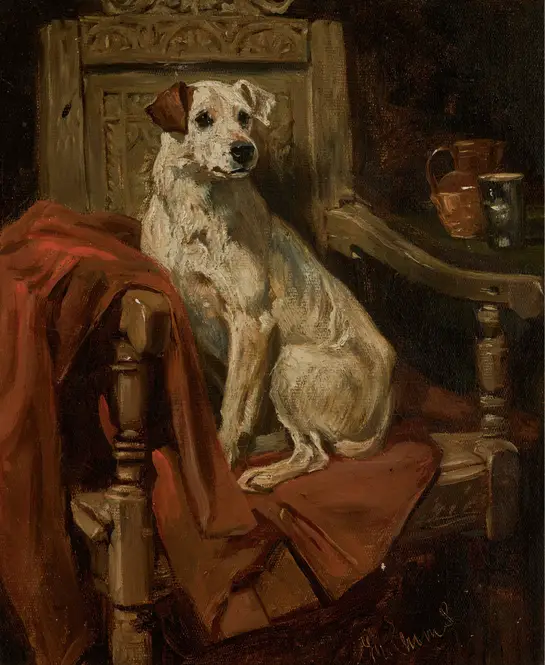
Waiting for Master
A poignant portrayal of loyalty and anticipation, where light and shadow weave an unspoken story.
-
 (1892)-full.webp)
North Woods Club, Adirondacks (The Interrupted Tete-a-Tete) (1892)
A tense woodland scene where two figures pause, their quiet exchange shattered by an unseen disturbance.
-
-full.webp)
Improvisation (1899)
A lively explosion of color and movement, where brushstrokes sing and forms dissolve into pure emotion.
-
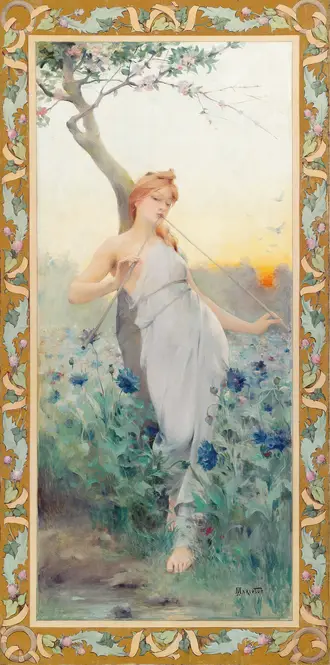
A Maiden Among The Flowers
A young woman stands amidst a vibrant garden, her quiet presence blending with the flowers in a moment of serene contemplation.
-
-full.webp)
Landscape with a Farmhouse and a Peasant Wheeling a Barrow (1865)
A humble countryside scene where a peasant struggles with a heavy barrow, framed by a weathered farmhouse under brooding skies.
-
-full.webp)
The Younger Brother (1903)
A tender portrayal of sibling love, glowing with warmth and lifelike detail, where every brushstroke whispers affection.